- Philip Norman’s “letter” to Paul - May 2, 2016
- The Jets and The Beatles - April 25, 2016
- Lennon and McCartney On The Tonight Show, 1968 - April 20, 2016
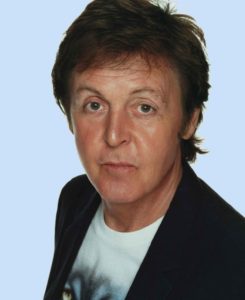
Apparently written around the time Paul McCartney’s marriage to Heather Mills collapsed, an alleged (and uncharacteristic) altercation between McCartney and his public prompted Philip Norman to editorialize in an article he wrote for the Daily Mail entitled What’s eating you, Macca?
After reading it I’d like to ask “What’s eating you, Norman? His animosity toward McCartney is almost palpable.
Dear Macca,
The millions of people who regard you as pop music’s patron saint will have been shocked and disillusioned by your recent behaviour – though, as The Beatles’ biographer and a long-time observer of your remarkable solo career, it comes as somewhat less of a surprise to me.Last week, you unleashed a stream of foulmouthed abuse at a photographer who had the temerity to try to take your picture during a late-night visit to London’s Tower Bridge, where the illusionist David Blaine is suspended aloft in his plexiglass prison cell.
According to the photographer, two of your companions, who strongly resembled ‘minders’, tried to intimidate him when he refused to hand over his film.
Not content with that, you were blisteringly rude to a bystander who asked if he could shake your hand. Even David Blaine came in for a bashing when you loudly referred to him as a ‘stupid c***’. Later, in more familiar McCartney style, you tried to smile away the episode as ‘a boys’ night-out’ and protested that you hadn’t really meant publicly to fire your PR man for having apparently set up the media ambush.
But all your formidable spin-doctoring gifts could not undo the ugly, unnecessary scene.
Like many others in your superstar firmament, you have the ability to shrug off uncomfortable truths, abetted by the legions of yes-men with whom you surround yourself and whose sole function is to tell you that you are infallibly wonderful every day of your life. But I wonder whether the David Blaine incident may have led even you to ponder on the decline in your reputation over these past few years – and ponder, too, the extent to which you may be almost deliberately unravelling one of the most carefully tended images in showbusiness history.
As a Beatle, you seemed as close to perfection as a young man could be. A brilliant songwriter, a uniquely poignant vocalist, cherubically goodlooking, funny, charming, polite, wellspoken and considerate to fans, you seemed to have everything.You were a secular Saint Paul, and the world and the world’s media ate out of your hand. Well, what a difference 35 years and £1billion make. In those days, it was hard to find a McCartney headline that didn’t sing your praises even more lyrically than you sang them yourself. Today, it’s hard to find one that doesn’t portray you as egotistical, grasping, small-minded, self-deluding, more than slightly absurd – and now, to cap it all, as moody, rude and foul-mouthed as any delinquent from pop’s kindergarten.
Consider the awful Press you were already getting when you decided to take that ill-advised ‘boys’ night-out’. Even your old friend and rival, Sir Mick Jagger, with his wrinkly stage antics and puerile pursuit of women a third his age, could hardly match it.
On your recent American tour, you were reported to be behaving like the worst rock megalomaniacs of the Led Zeppelin era. A special request added to your backstage requirements issued to promoters forbade meat to be served to you – or eaten by anyone in the road crew.
Above all, you portrayed yourself as just an ordinary musician on the road, who would pile aboard the tour bus with the rest of your band. However, I’m told that as you came offstage each night, the band were expected to line up and give you a ‘spontaneous’ ovation.
The fact is that, where you’re concerned, we have all swallowed an illusion as skilful as any ever created by David Blaine. All that’s happening now is that the mask is being allowed to slip.
For, even in those magic, innocent early Beatle times, you were never remotely like the smiling boy-angel the world took you for. You had just the same young man’s foibles as John, George and Ringo, as well as a good few peculiar to yourself.
The melting moon-face and sad puppy-dog eyes already masked a ruthless ambition to make it, with or without the other three. Remember how, even in the band’s earliest days of playing gigs for ha’pence on Merseyside and the Cheshire Wirral, you were always known by the others as ‘the Star’?
The niceness for which you became famous was not wholly illusory. All four of you Beatles were indeed incredibly nice and, more incredibly, managed to remain so, even after being penned in a goldfish bowl far worse than anything David Blaine could contrive.
The difference was that, while the others often gave way to understandable temper or frustration, you could never bear to drop that honeyed manner, whatever your true feelings.
Amid the trauma of The Beatles’ break-up, your wisest move – though few at the time recognised it as such – was to wed American photographer Linda Eastman.
The marriage proved a spectacular success, allowing you to combine your globally successful post-Beatles band Wings, featuring Linda on keyboards, with a stable home life known to few others in that echelon of the music business. Together you raised four children to be civilised human beings rather than over-indulged rock-brats. With shy, dignified Linda around – apart from a few aberrant drugs-busts, one of which got you briefly locked up in Tokyo in 1980 – your public profile was irreproachable.
The problem was that, jointly directing your band and your profit-rich publishing company MPL, you became ever more of a ruthless perfectionist and autocrat, elbowing aside anyone who threatened to steal even a molecule of your limelight.
Have you ever paused to wonder, for instance, why your feature film Give My Regards To Broad Street proved to be such a turkey? Quite simply, it was because, regardless of either the plot or the quality of screen actors you hired, you insisted on making yourself the soft focus centre of virtually every shot.
Yet, despite all these rumours and rumblings, your image endured – that of cheerful, cheeky ‘Mister Thumbs-Up’, an unspoiled boynext-door who still greeted each day with a Beatley cry of ‘Great!’
Linda’s death from cancer in 1998 and your obvious devastation unleashed a fresh tide of love and goodwill which diminished when you met and proposed to former topless model Heather Mills, a woman young enough to be your daughter.
It is obviously unfair to compare your new wife with Linda, even though both experienced exactly the same backlash for daring to marry a man whom a large part of the world’s womanhood regard as their personal property.
Much of Heather’s unpopularity may well be undeserved – but she does have an unfortunate knack of compounding it almost every time she opens her mouth. Heather has received much of the blame for the new, abrasive Macca we’re seeing, and certainly the symptoms are those which often tend to occur in a 61-year-old man with a much younger wife. Where once you carefully limited your public appearances, you’ll now willingly escort Heather to the opening of an envelope.
Your hair-dye is so obvious that, when you last played at the Oscars, it received an unofficial award as the evening’s best special effect. Swearing at a photographer may also strike you as youthful and macho, though I suspect you’d be far more upset if photographers began to ignore you.
So determined are you for Heather to be accepted that you even let her give you critiques of your night’s performance, a privilege you seldom gave to your fellow Beatles – and one which I doubt Linda ever exercised.
Recently, you refused a music industry lifetime achievement award because you said it implied your career was over and you had nothing left to give to music.But hanging onto youth is only part of the reason why, despite all your colossal achievements, you continued to push yourself to such an extent, touring for months on end and pumping out records as well as writing classical symphonies, exhibiting your (not very good) paintings and publishing your (at best mediocre) poetry.
It seems you cannot rest until you’ve persuaded us that our typecasting of The Beatles all those years ago was so completely wrong; that you weren’t just the ‘nice’ one while John Lennon was the arty and edgy one; that you can do anything John ever did, and still more.
That said, it’s almost some comfort to us lesser beings that, even if you are Sir Paul McCartney, with that vast pile-up of achievement and honours behind you, you can still be insecure enough to wake in the night, sweating and fuming over the running-order of a credit on a record made almost 40 years ago.
In other words, Sir Paul, you’re only human. And that’s what you’re belatedly starting to show us.
Yours,
Philip Norman

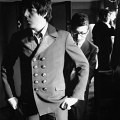
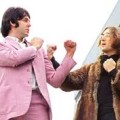


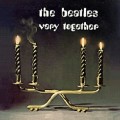
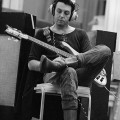
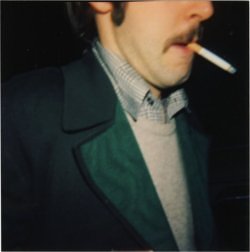
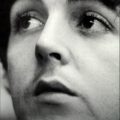

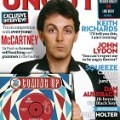
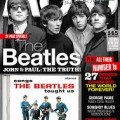
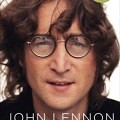
I’ve read this before, and this is primarily why Norman has no credibility in my eyes. It’s like if Rush Limbaugh decided to write a book about Obama…. Umm? Pass.
What a creep…. I can’t imagine the hell of living a public life- it’s a miracle that Paul and Ringo have survived. I hope Norman’s crummy book tanks and he never gets published again.
What’s fascinating is the way Norman is spin-doctoring his own reactions to McCartney now, after so caustically berating him for trying to safeguard his public image. Reading the recent Newsweek piece that Ruth provided a link for next to this “letter” is certainly revealing. It underlines my sense that Norman hates in McCartney all that he fears to see in himself.
Also, Norman’s saying that McCartney’s gotten nothing but good press until this incident is ludicrous. Norman believes what he wants to believe — what it suits his judgments to believe. He seems entirely to miss the irony that he’s doing, in spades, precisely what he’s harshly condemning in McCartney.
ETA: As Mike pointed out back in 2013 when Norman’s bio of McCartney was announced, Norman’s obituary of George Harrison is ugly as well. Here’s a link to the text of it. (Not up on original site, and please note that on this one the poster has added the note at the top.)
Besides the lack of charity toward George as both a musician and a human being, Norman makes an obvious factual error in this piece. He asserts that after Lennon’s murder “of the surviving Beatles he [Harrison] was the only one to record a tribute song, ‘All Those Years Ago.'” But McCartney released “Here Today” in 1982, 19 years before Norman’s obituary of Harrison was published.
Bottom line: I still don’t trust Norman’s fact-checking or his ability to be fair to his biographical subjects. It is possible to describe and analyze a subject’s flaws and mistakes with appropriate humility and compassion. However, Norman doesn’t seem able to criticize without sounding personally affronted. It’s as if he’s bitterly angry that these men with human faults succeeded in creating something more beautiful and durable than he can. It reminds me of what Harold Bloom has written about some literary critics belonging to “The School of Resentment.”
Much of this “letter” is virtually identical to the “Paul” section of the afterword of the revised 2005 edition of Shout!. The Shout! section is longer, of course, contains insults regarding Stella’s total lack of talent as a fashion designer, and argues that the public mourning over Linda’s death was not necessarily for her, per say, than it was a hangover of England’s mourning over the recent death of Princess Diana. Something about England still wanting/needing a “Blonde-haired martyr” and Linda fitting the bill.
Interestingly enough, the 2005 edition is also the one where Norman admits his previous bias against Paul and argues that he tried to fix parts of it in the re-editions.
It’s “per se”, Latin for “in itself.” A gentle reminder. I always thought Shout! was written by Norman to the Beatles’ specifications. Perhaps Norman resents being an outsider, after his fabled access to them in the 60’s?
I think that was an auto-correct or typo, Sir Huddleston.
Well, yes. But I should have caught it.
Thanks for the gentle reminder and clarification on “per se,” Sir.
My understanding is that Norman’s access to them in the 60’s was fairly minimal — certainly no more remarkable than various other journalists, and less so than, say, Ray Connolly in the later years or Ray Coleman in the earlier ones.
Norman specifies in the introduction of the original edition of Shout! that he got no direct help from any of the Beatles — he sounds rather disgruntled about it — and argues that their lack of direct input makes the book stronger. Which, to be fair, can be a valid argument.
What was this guy’s problem? He sounds like a spurned fanboy, with an unrequited hard on, who’s takes revenge the only way he can…with a poison pen! I know that Paul is no saint, and never claimed to be as far as I know, but he just couldn’t win with this fella.
If Paul smiled, was nice, let shit pass without complaint, he’s painted as a lightweight, saccharine fake. If Paul blows his stack and yells “fuck off!”, he’s condemned as “…behaving like the worst rock meglomaniacs of the Led Zeppelin era.” Seriously??!!
Jeez!
What strikes me about this bit of writing is that Norman correctly observes certain tendencies of McCartney, but had no understanding of them. He fills in the blanks with this kind of inexplicable animosity.
That’s just it! He lacks the insight, imagination and emotional intelligence of a writer and lacks the objectivity of a journalist. This guy is a stone-cold HACK. How insanely unprofessional is this “letter”? How does this guy have a job? This is white male, boys-club bullshit at its absolute most glaring.
@Chelsea, what’s your answer to the question? Why does he have a job? Why does this person, of all people– One of the few people on earth that doesn’t like the Beatles — have a cushy sinecure writing about the Beatles? This is the interesting territory re: Norman.
I don’t think gender has much to do with it, because publishing is run by women; that’s absolutely true on the editorial side, and it’s more and more true on the money side too. My guess is that Norman is what stupid people think an expert looks like. I think he initially parlayed his Swinging London pedigree into writing Shout! Then he became the go-to writer in Fleet Street whenever a Beatle was in the news.
And after that, the Lennon bio; and after that, this companion McCartney bio. It’s meant as an add-on, an “if you liked that, you’ll like this.”
I really think that it’s publishing stupidity at its finest, and when I mean by that is: an editor, particularly a stupid one, doesn’t see the world the way a normal person does. He/she lives in the ever shifting shorthand of media world Zeitgeist. And in this massively distorted world, taking down the Beatles a peg or two would be seen as new, fresh, and intellectually rigorous. It’s a short step from this bizarre misperception, to thinking that everyone else also feel a delicious thrill at slagging the Beatles.
This is how the Goldman book got published; and why its underperformance was such a mystery to publishing people. And it’s also why, to idiot Fleet Street types, Norman’s obvious animus towards McCartney– which is so weirdly personal, it must be the product of some history between the two we do not know — isn’t a bug, it’s a feature.
I brought up Norman’s sex to highlight the discrepancy in the consequences of unprofessional behavior as experienced by white men v. women, people of color. But admit I don’t know how it plays specifically into his career.
I dunnno, Chelsea. Have you heard of someone by the name of Kitty Kelley? She’s a biographer and has been largely criticized for writing the same style of bios as Norman, and even Goldman.
She is still considered a successful writer and biographer, regardless of the criticisms levelled at her work.
OK. Didn’t mean to hijack anyone’s rant with my soapbox.
No worries.
And for sure you’re right — especially in British journalism. Incredibly sexist and nasty.
Fleet Street in the Sixties, when Norman got his start, was surely a boys’ club. And to some degree, book publishing in the late 70s and early 80s was probably, too. But in this day and age, at least American publishing is dominated by women. (This may explain why Norman’s subsequent books have been less egregious towards Paul?)
If I had to venture a guess, I think Paul stole Norman’s girlfriend back in the 60s. Or crashed his car, or mistreated his cat, or sucker punched his mother… There’s more to this story than we know.
Occam’s Razor would suggest Paul slept with his girlfriend/wife.
I wonder if it might be as simple as jealousy. Paul was much better looking, had extensive sexual prospects, and was part of the most famous and successful band in the world~ and Norman wasn’t. Norman’s repeated digs about McCartney’s good looks and success with women sure read like they come from a kid with his nose pressed against the window of a candy store he can’t get into.
According to this review of the Paul bio, there is an element of that: http://rnrchemist.blogspot.com/2016/05/book-review-paul-mccartney-life.html
“In his foreword, Norman explains the origins of his animus toward Paul and how they eventually came to a detente. He first interviewed the Beatles backstage on their final UK tour in late 1965 and mentioned how the Beatle he most wanted to trade places with and live the life of was Paul, for his looks, talent, wealth, and girlfriend (the actress Jane Asher). He also spent time covering their Apple Corps. company during the late 1960s as the band was falling apart. However, he describes feeling almost betrayed by Paul in the wake of the band’s 1970 split due to the (incorrect, as it turned out) public perception that Paul was solely responsible for breaking up the band and for suing his former bandmates. Additionally, he disliked Paul’s music with Wings in the 1970s, thinking it lightweight and believing that he was squandering his musical talents by making music that fell far short in comparison to his Beatles work.”
” . . . the Beatle he most wanted to trade places with and live the life of was Paul, for his looks, talent, wealth, and girlfriend . . . .”
Yup, makes sense. But just how much has Norman really moved on, I wonder? As late as 2005, when this “letter” was written, his anti-McCartney animus is still in full force, and feels much more heated and personal than “I don’t like the music you’re making.”
For Norman’s sake, I hope he really has let go of this grudge, and that he’s not just saying he has in an attempt to salvage his reputation and sell copies of his book.
And why is he so harshly critical of George as well? Has he ever admitted that, or tried to explain it? He pretty much ignores Ringo, if I’m remembering “Shout!” correctly.
Your memory is correct: Ringo’s presence in the first edition of Shout! is almost non-existent.
I’ve never seen any admittance from Norman that he was A. unfair to George in Shout! (even though his portrayal of George was just as negatively biased as his portrayal of Paul) or B. why he had such disdain for George’s musical contributions and personality.
Given that Norman’s interpretation and conclusions appear to be so heavily dependent on his personal feelings regarding the subject, I’d guess the simplest explanation is that since he didn’t personally like George’s music or persona, he concluded there was nothing to like.
Holy cow. I wonder when Norman finally realized Macca was the flypaper to which he was flinging his own shite.
I got it. My local library already has it and I grabbed it before someone else checks it out. The review you posted the link for Ruth, really piqued my interest in spite of Norman’s reputation. Looking through it it’s really a beautiful book with many thoughtfully picked photos, both black and white and color. It’s a mammoth 900 or so pages which is the minimum that someone of McCartney’s stature deserves. Based on the review you shared Ruth, and my initial observations of the book itself, I’m actually looking forward to reading this. This surprises me because I was not planning on reading this book or even acknowledging its existence.
Additionally, he disliked Paul’s music with Wings in the 1970s, thinking it lightweight and believing that he was squandering his musical talents by making music that fell far short in comparison to his Beatles work.” Here I tend to agree with him, I also dislike his music with Wings and I have no idea why he included Linda in this band, as she never had talent. I am sure his music would have been much better without her. I am sure because I listened to his demos called Rude…and it is amazing. No Wings, no Linda…Only naked Paul. Amazing. We can see what a true talented musician he is. On the officials records the magic disappears. But…that is not a reason to hate Paul that much and write silly things..It is even laughable the way he writes about Paul. Sound like a former lover, still in love, trying revange.
Virginia, thanks!
I love these demos!
I’d never heard the Rude demos before. Nice!
Oh, so that’s what they called “little Paul,” back at the Scotch of St. James’, eh @Chelsea?
The very first words in Shout (I have the 1982 edition), in the Author’s Note, are
So yeah, he’s been nursing a grudge against them for a very long time.
The ego-audacity of that statement is rather astounding. Someone needs to write a book about Philip Norman.
No one will ever write such a book (because who on earth would read it?), and IMO that’s one of the reasons Norman can fling shite at his subjects. He can sit in extended judgment upon others knowing he will never be subjected to such treatment.
It was a tongue-firmly-implanted-in-cheek comment, obviously.
It would be nice if someone called him out though. A girl can dream, can’t she?
Karen, your grasp on reality seems firm, so I was sure you were joking! Living with the kind of resentment Norman displays in this letter is its own punishment, IMO.
I sometimes wonder about my grasp on reality!
That’s…weird.
Just sayin’.
What’s weird? That Norman’s ego is so inflated that he thinks celebs owe him an interview, or that I think so?
The Author’s Note. If I’d been his editor I would’ve said, “Nobody wants to hear you bitch. No reader cares that you’re miffed.”
I’ve literally never seen an Author’s Note like that. It actually injures his credibility.
Glad to hear you say that–I thought for a minute I was having an out-of-body experience.
I’ve been reading the McCartney book reviews on-line the past hour or so and I’ve concluded that, in addition to Norman, the reviewers are equally out to lunch. Among other things, they are clapping Norman on the back for “reassessing McCartney”, and are announcing as revelation Norman’s (revised) view that, hey, McCartney didn’t actually cause the band’s break-up and “it really was Paul, Linda and John Eastman up against the might of the Apple lawyers and lawyers representing Allen Klein.”
Thank you, Philip Norman, for taking over 40 years to figure it out, and thank you, book reviewers, for patting Norman on the back for it.
Day late, dollar short, gets the credit others deserve ~ sigh. I do hope this book at least prevents some people from continuing to accept the old “Shout!” view of McCartney.
If it takes a Norman recantation of previous obtuseness to get through to reviewers, I hope he gets to work on “reassessing” George and Ringo stat.
Meanwhile, I just bought tickets to a McCartney concert. Norman’s book I don’t even want to check out of the library.
Oh, don’t worry — if this book does even passably well, he’ll do bios of George and Ringo too.
I’m with you Nancy. I would love for a dullblogger (hello Ruth…) to do a book review though
I could eventually do a review, but for the moment I’m still waiting on my library copy.
Ruth, if you could do a review we would LOVE to read it. I hope you get your library copy soon.
My library still doesn’t have it on the shelf: maybe you should ask someone else to do a review, or everyone else will have read the book before the reviewer. Sorry.
I can offer something else in compensation: my university’s Inter-library Loan department got me a copy of “John Lennon Called Me Normal,” by their engineer Norman Smith. Evidently its pretty hard to get your hands on — there were only three library copies worldwide — if its worth reviewing, I can do one on that.
As I said earlier, I haven’t bought almost any Beatles books — I’ve gotten almost everything from libraries — but having a University Inter-Library Loan department was a huge research benefit. (Although it did make for a somewhat awkward conversation when I had to ask our librarian for a “Playboy” I.L.L.)
That would be awesome, Ruth!
Heartily seconded!
er… you did see that I posted a link to a legit copy of the Paul McCartney The Life ebook below in this very thread? I mean anyone who wants a copy is welcome to grab it
I did, gifthorse, and thank you — but I am old-fashioned enough that I prefer to have the actual physical book in my hands, take notes from it, etc. (Plus, now I have Smith’s book to read first, and its a fairly decent sized book).
@gifthorse, that’s copyrighted material, and I’ve removed it.
Everybody, don’t post links to pirated stuff. They will be removed.
I know and I understand but Philip Norman is a special case. I bought and cracked his epub within about 5 minutes of release and it’s all over the internet it wasn’;t just here. Call it my little gift to George he’s not here to wipe the floor with the man who wrote one of the world’s nastiest obits but I am – if a an author angers the target audience for his work enough, you better believe there are consequences,. Sorry to have offended you but in general I intend to spread this ebook far and wide. I have never done this before and will likely not do so again but Philip Norman had it coming
@Gifthorse, I really wish you would reconsider that course of behavior, and I’ll tell you why.
The only reason I was able to start this blog, and maintain it over the years, is because I got very, very lucky with one single book, my parody of Harry Potter. That one project — after decades of projects that were just as funny (or funnier) — translated into commercial success. It’s not just no Barry Trotter = no Dullblog; if my sales in the UK and Europe had been crippled by piracy, as they were in the US, this blog could not have happened. I simply would’ve have the time to do it, or the money to pay for it.
When I did write the take down notices, the posters always had the same rationale for pirating my book: “Nobody should be allowed to make fun of Harry Potter; this guy is just angry because he couldn’t come up with better ideas himself; he shouldn’t be allowed to profit off of Harry Potter.” These were all absolutely dopey things to say. If they’d taken the time to READ the book, they’d have seen that I’m a Harry Potter fan, and the reason the parody is funny is because I’d read and loved the original books. If they’d read any interviews or listen to me on the radio, they’d have heard me telling everyone to read the original series, and then if they were really hard up, they could buy my book. And they clearly didn’t understand what parody is — you don’t do it because you can’t come up with ideas. So these supposed defenders of Harry Potter totally misunderstood what I was doing and why; and by their actions, prevented anybody else from deciding for themselves what they thought.
So that’s one thing, the unintended consequences of your actions. By preventing something you don’t like and support, you may also be preventing something you DO like and support. And you might be wrong.
The second thing is this: I’m not offended. I understand your motivations, and agree with you on Norman. But publishers pay for Beatle-related stuff because they think they will make money. If Norman’s bio tanks, they won’t think, “Oh — we should’ve had him write a better, more balanced, more pro-Paul book,” they will think, “I guess the Beatles don’t sell anymore.” Please believe me on this. Publishers do not think very deeply.
The third thing is this: censorship, even when benignly meant, isn’t good for artists. So you read Norman, found it icky, and set to distributing the cracked epub to punish him. A year from now or five, someone will write the definitive biography of George Harrison — say it’s a wonderful book, the product of years of research like my friend Gary Clarke’s book on Truman Capote (which was eventually made into a movie and introduced whole new generations to Capote’s work). But say some fundamentalist Christian people believe that, being a Hindu, George was spreading the work of Satan — and so they decide to cripple the book’s sales in just the way you are attempting to do. There being many crazy fundies out there, such a campaign is much more likely to succeed; and so the author will suffer, the publisher will suffer, and (most importantly by far), generations of people who might love George and his work will not encounter it. Is this something you want to encourage?
I happen to agree with you that Philip Norman’s past work suggests that he’s not a “fair broker” on the topic of Paul McCartney; but you and I could be wrong. Just in case we are, we should let readers decide the fate of the bio. Suppression/censorship, no matter how well-intentioned, or double-backflip-judo the logic, ultimately hurts creators — people like Paul McCartney — the most of all. The Beatles happened thanks to capitalism and copyright. Though neither of those things is an absolute good, Beatle fans in particular should think very long and hard about issues of piracy. If you’ve thought about it and come to a different conclusion, @gifthorse, fair enough — but I do hope you consider what I’ve said.
Mike, could you explain how authors fare when the book they’ve written already hit the library? I was surprised to read that Norman’s book was already available (in the library). I thought there’d be some lag time between sales and library availability. That seems unfair to authors.
Karen, I believe it’s standard practice for libraries to get books at the same time bookstores do. I don’t think it’s unfair to authors — you often have to wait (sometimes quite a while) to read a book that’s in high demand, and you can only keep it for 2 or 3 weeks if others have holds on it, so it seems sufficiently different from owning the book to be fair, at least to me.
Also @Nancy don’t libraries have to buy the books to begin with? So that’s added sales no? And yes with new books about popular people like the Beatles, the Kennedy’s, current presidents,and people in the news including popular tv and movie stars, there’s always a waiting list to borrow a book. When you do finally get it sometimes you aren’t even allowed to renew the book because there are others waiting for it. I managed to grab this latest McCartney book before anyone else but because so many are waiting to read it, I’ve been on a reading marathon trying to get through a 900 page book before I have to give it back. I like to savour a good book…take my time with it, but I can’t this time. Luckily I’m finding Norman’s book to be a real gem and I actually can’t put it down. Folks the book is great. It’s so well written and the tone is gentle and admiring. Norman has done Paul a huge justice with this book. And above all it’s interesting. I’ve read hundreds of Beatles books and every McCartney book, so if he was able to make every page of this book interesting even to me, that is some good writing.
I’ve worked for and with librarians for years, (both public and academic) and they absolutely have to buy the books, although they generally get a small discount on their purchases. They also, in some cases, offer e-books, but can only lend them out to a certain number of people at a time. And, as you said, you have to deal with waiting lists and, (in my case) long delays until the book is ready for you. I’m actually first in line to read the Paul bio, but it is still on order, which is why I still haven’t received it. Even my mainstay, interlibrary loan, doesn’t work for new releases: libraries simply won’t let you borrow from another library branch for at least six months to a year.
I’m very interested in your take on the book, linda.a — but I know how frustrating it is to have to sprint through a book in order to return it on time.
Ruth, Linda, Nancy–thanks, I hadn’t thought about the points you raised. And I remember waiting eons for The Kite Runner and Still Alice (I ended up buying one of them because I got tired of waiting. )
)
I know exactly what you mean Karen. I requested a book on February 1st and only a few days ago it was finally available. So many times over the past months I considered just buying it because I was getting tired of waiting so long. And now I’m still not able to read it because I’m in the middle of reading the McCartney book.
I’m actually first in line to read the Paul bio, but it is still on order, which is why I still haven’t received it.
There might be a lot of McCartney fans working in my library because they always seem to have every book on McCartney the day it’s released. I remember back in ’97 when Many Years From Now came out it was the same thing. When I went to check out Norman’s book the other day, the librarian was swooning over the front cover photo.
I’m very interested in your take on the book, linda
Like I mentioned I had no intention of reading the book or even acknowledging its existence until I saw the positive review that I think you Ruth, posted here. I’m so glad you posted otherwise I would have missed out on a great book. It’s packed with information but all of it is useful, rather than the usual tabloid regurgitations found in most McCartney bios. The book is part biography and part character analysis. Norman emphasizes the people and events that shaped who Paul is as a person and also contributed to the type of musical talent/genius he became. Most impressively, he manages to weave this theme through the book like a labyrinth of stories that all seem to come together with the effect that McCartney seems to jump off the pages. He keeps his opinions completely out of it preferring to let the facts speak for themselves. Regarding tone once again, I’m extremely sensitive to the tone of biographies. If the tone is dismissive or condescending I pick up on that immediately. You can always tell when a biographer dislikes or is disinterested in his/her subject. But the tone of Norman’s new book is as reverential and affectionate toward its subject, as his 2008 book on John. However of the two biographies I think this one on Paul is the superior work because he manages so well to keep his editorializing out of it. He was not able to do that in the John book. There are awkward sections in John Lennon the Life where Norman feels the need to make trivial observations to fit some vague idea that never goes anywhere. The ironic thing for me is that for years we fans have been hoping for the biography that McCartney deserves. We were hoping Lewisohn would write it, or someone like him. The last person on earth to write such a book was Philip Norman of all people. Yet here it is. The book everyone was dreading turns out to be the book we were waiting for.
“When I went to check out Norman’s book the other day, the librarian was swooning over the front cover photo.”
That is too funny. The marketing people did a good job in choosing a cover that grabs your attention.
Your thoughts on the book make me wish my library system would pick up the pace. The most fascinating aspect of historiography for me are the differing ways events are told and interpreted — and I’m very interested to see how differently Norman approaches certain events and individuals in the Paul bio, as opposed to how he depicted them in Shout! From the excerpts I’ve read, Norman is now a full-blown Paul/Linda shipper, whereas in the first edition of Shout! he’s virulently anti-Linda.
“There are awkward sections in John Lennon the Life where Norman feels the need to make trivial observations to fit some vague idea that never goes anywhere.”
Yes. You nailed it on the head. There are also sweeping generalizations, no citations, no bib …
I had some issues with Norman’s John bio, particularly his (lack of) coverage of the 1970s and Norman’s account of John’s final years, as well as his overreliance on a singular (and hardly unimpartial) source in form of Eliot Mintz. But the writing in that bio is stellar: there are scenes and descriptions that are vivid and evocative.
“That is too funny. The marketing people did a good job in choosing a cover that grabs your attention.”
That is too funny. I’ve seen books published with different covers, depending on the country of circulation. Quite often, American versions are different from Canadian versions, which are in turn different from U.K versions, particularly when they are 2nd, 3rd, etc editions.
Someone should do a social experiment and see which covers correlate with better sales.
Ruth and Linda A., thanks for your posts. You piqued my interest so much that I picked up the book today at my library (it was right there on the “new” table, looking at me!) Reading the introduction gave me a new respect for Norman. I’ve now added an afterword to the post I wrote about Norman’s poem, since he acknowledges that it was “horrifically tasteless.”
This makes me realize how easy it is to get locked in to a view of someone (Norman of McCartney, me of Norman) and how limiting that is. It will be interesting to compare views on this biography once we have all read it.
Maybe you should write the review for it, Nancy — if you have the time and interest, of course. I’d be fascinated to know what you make of it.
This makes me realize how easy it is to get locked in to a view of someone (Norman of McCartney, me of Norman) and how limiting that is
This is so true Nancy.
No serious biographer of John Lennon would pay ANY attention to Eliot Mintz. All due respect to him, but he is John and Yoko’s PR person, employed now for decades to pump out approved narratives.
I’m very interested to see how differently Norman approaches certain events and individuals in the Paul bio, as opposed to how he depicted them in Shout!
I read Shout in 1981 so I don’t remember anything he wrote. What I do remember is the tone of the book and I remember it was shockingly anti McCartney. I knew next to nothing about the Beatles then, so I just took everything he said at face value. There was nothing available then to provide a counter opinion so I figured Norman’s observations were based on fact. I thought wow Paul McCartney is a lousy person and poor John, George and Ringo for having to put up with him.
As for Paul/Linda he lets everyone in Paul’s life simply jump off the page. But yes he obviously admires Linda and I think part of the reason is that the people he talked to loved and admired Linda. With everyone in Paul’s life Paul included, the record just speaks for itself. He also greatly admires Paul’s parents, especially Jim, and the way Paul was brought up.
particularly his (lack of) coverage of the 1970s and Norman’s account of John’s final years, as well as his overreliance on a singular (and hardly unimpartial) source in form of Eliot Mintz.
Jeez I don’t remember that either. It’s been eight years since I read the Lennon book. But Elliott Mintz? Seriously? That is definitely a problem. And he skipped the 70’s? Actually I didn’t really care for the John book. I thought the first part was good with excellent coverage of John’s family and background but then it went down hill for me.
“There was nothing available then to provide a counter opinion so I figured Norman’s observations were based on fact. I thought wow Paul McCartney is a lousy person and poor John, George and Ringo for having to put up with him.”
Yes — I had a friend in high school who, after Anthology came out, read Shout! and had the exact same reaction. I also knew people in high school — this was the mid-90’s — who, after watching Anthology, read “Lennon Remembers” (I remember them passing it around) and regarded it as holy scripture. They worshipped John for his anti-authoritarian stance but hated Yoko (mainly because they thought she was unattractive — although, being teenaged boys, they used cruder language). They had long, serious conversations about John, and argued, in all seriousness, that Paul McCartney was a terrible bass player. The attraction John as a rock idol holds for teenagers — especially boys — is absolutely fascinating.
“But Elliott Mintz? Seriously? That is definitely a problem. And he skipped the 70’s?”
Seriously. The John bio was among the first pieces of Beatles historiography I ever read, and I remember being troubled — before I had any idea who Eliot Mintz was, and that there might have been issues with his credibility — at Norman’s serious overreliance on this singular source for essentially the entire decade of the 1970s. Overreliance on a single source — particularly when you have other, available sources — is a pretty glaring methodological error, and almost always means you are only getting an “approved” version of an event.
Norman doesn’t “skip” the 70’s, “per se” (see, I did it right!) but skims over it with a shrug, basically arguing “Well, John was happy from 1975-1980, and happiness is boring, so there’s nothing much to talk about.” Which again, even as a novice reader with virtually no other Beatles knowledge, struck me as misleading. John Lennon struggled with psychological and addictive issues his entire life, but I’m supposed to accept that those fundamental aspects of his personality magically vanished in the last five years of his life?
Ruth, I wonder how much of Norman’s leaning too much on Mintz as a source has to do with the Lennon bio starting out as “authorized” by Yoko Ono. Writing the book with Ono’s approval in mind can’t help but have shaped some of what he chose to include and exclude, as well as what he said about what he did include. And in the end Yoko withdrew her approval because the book was “mean to John,” in her view.
I think it’s interesting that in the intro to the McCartney bio Norman describes Ono calling him after an interview in which Norman says Lennon was “three fourths of the Beatles.” He reports that she told him what he said was “very nice,” and that she expressed a frosty attitude toward McCartney when they talked. Norman doesn’t comment on this sequence of events, but I think it’s pretty telling.
I wonder if what Ono wanted/expected out of Norman’s Lennon bio was a book that would show John as “three fourths of the Beatles.” At this point I think I have to give Norman credit (at least post-Shout!) for letting his view of a subject develop as he researches the person’s life. Maybe Norman went into writing the Lennon book expecting that he’d confirm his view of John, and what he found modified that somewhat. If so, that would go with what Linda A. says about the view of Linda that Norman presents in the McCartney bio being so different from what he’s said about her before.
“I think it’s interesting that in the intro to the McCartney bio Norman describes Ono calling him after an interview in which Norman says Lennon was “three fourths of the Beatles.”
I find the sequencing of events interesting too, Nancy, but Norman offered the same account in the 2005 introduction of Shout! and outright declares that that statement is what “won me my initial access to Yoko.” Here’s the larger quote in context, as well as his response to accusations that he was biased against Paul:
“Others felt that my judgments of Paul McCartney were too harsh, perhaps even motivated by personal dislike. In the Beatles subculture, one inevitably finds oneself tagged either as a ‘John’ person or a ‘Paul’ person. I cannot pretend to be other than the former. Just the same, it was wrong of me – though it won me my initial access to Yoko, to say as I did on an American TV news program, that ‘John was three-quarters of the Beatles.’ I would not question McCartney’s huge talent or deny that … he was far nicer than he ever needed to be.”
However, this admission changed almost nothing: the 2005 revised edition of Shout! is almost identical to the 1981 edition; there is a noticeable anti-Paul (and anti-George) tinge throughout, and evidence that was readily available and widely-known — such as George’s leaving the “Let it Be” sessions due to the punch-up with John, as opposed to his quarrel with Paul — is unchanged.
argued, in all seriousness, that Paul McCartney was a terrible bass player.
That is really going too far. And I wonder where on earth they would have heard that. Not even Shout said anything about that nor did John, or anyone for that matter ever say that Paul was anything less than a great bass player. Well I know Shout didn’t say he was a great bass player but it didn’t say anything about his playing either way. That is just plain dopey. Speaking of playing, I do seem to remember Shout was the original source of Ringo getting labeled a bad drummer. That silliness still persists today. I was just recently talking to a friend and co worker about the Beatles and I mentioned that Ringo was a great drummer. Her eyes widened for a split second, as if she was thinking, Are you stupid? Then she just looked at me as if she felt a little sorry for me and quietly said, No he wasn’t. I said, Yes he was, then we both changed the subject. Because the book says, Ringo was a bad drummer it must be true. Doesn’t matter that anyone can listen to any recordings….literally on record….And hear for themselves. Clearly on every Beatles recording, there is someone playing drums very very well and I’m just going to try and take a wild guess as to who that someone might be. I don’t know….their drummer Ringo Starr? Did I guess it right? No?
skims over it with a shrug, basically arguing “Well, John was happy from 1975-1980, and happiness is boring, so there’s nothing much to talk about.
Now I remember. Yes I believe the book does end in 1975, with John getting stuck in that storm while he was out sailing. It’s an odd choice to end the book at that point in time. As for using only one source I wonder if Norman regrets letting Yoko be so involved. Maybe Mintz was the person available who was allowed to talk to him? He uses many sources for the Paul book.
John Lennon struggled with psychological and addictive issues his entire life, but I’m supposed to accept that those fundamental aspects of his personality magically vanished in the last five years of his life?
Not unless he was receiving years of intensive therapy and no one has ever said he was.
In response to Paul’s bass playing, I think it was just a case of adolescent reasoning: they believed John was the end all be all of rock stars, and seemed to think (as some do) that believing that requires demeaning the other Beatles, esp. Paul — despite all the evidence to the contrary, especially regarding Paul’s bass playing.
“It’s an odd choice to end the book at that point in time.”
Sorry, my sarcasm sometimes gets out of hand.
Norman’s John bio doesn’t “technically” end in 1975 — it ends with the day or so after his murder — but his coverage of the last five years of John’s life is so sparse, one-sided and loaded with Yoko and Mintz approved P.R. that it might as well have ended in ’75.
I don’t think the “Ringo/bad drummer” trope began with Shout!, because honestly, Ringo’s depiction in Shout! — the first edition, anyway — is almost non-existent. Shout! certainly didn’t improve Ringo’s reputation, but it didn’t demean it either; it didn’t pay much attention to him either way. (In a lot of ways, George is the one who suffers the most in Shout!, because Norman not only pays little attention to him, but virtually *every* depiction of him, either as a musician or a person, is negative). I think that trope pre-dates Shout! all the way back to the “controversy” over why Ringo replaced Pete.
Can I admit something? With fond memories of the prose style in Shout! I bought John Lennon: The Life eagerly. And then stopped reading after 175 pages, when it was clear that we were going to get John Lennon: Slightly Better Than Coleman.
the last five years of John’s life is so sparse
But of course there is a whole shelf of books on the last five years of John’s life; and there are many, many accounts in the press. The problem is that they all agree — for most of that time, Lennon seems to have been deeply depressed and miserable. Norman had to be skeletal because all the sources were pointing him towards a story that the Estate didn’t want told.
I would not be surprised of the suppression of the Dakota period was the sole reason for Yoko’s authorized/not-authorized two-step — use authorizing as a way to control Norman’s story, then pull it after the book’s gone to press. This is outrageous to me, as a Lennon fan; and it’s this kind of behavior more than anything else that makes me think Goldman was fundamentally accurate about 1975-80. I don’t WANT to believe Goldman, but…
And the decay and anomie of the Dakota period is hugely important to the story of John Lennon. Without it, his life is fairy tales and pizza for wannabe rebels.
Ruth I really did think I was remembering the book ending in 1975 when he was in the storm, with just an afterword about the murder. I guess I just don’t remember much at all.
As for Ringo, it makes sense that the bad drummer nonsense didn’t start with Shout if he wasn’t even mentioned in Shout. Unbelievable. I forgot that. What an awful, awful book. Is it possible then, that it started because Ringo would never do a solo and was soon overshadowed by more showy drummers in the 70’s?
Well, shit. @linda.a. this sounds like a book I’d enjoy! Thank you so much for your comments. Maybe I’ll get it after all.
Chelsea I don’t think you’ll be disappointed. I do think you will enjoy it. I’m a little sorry I didn’t buy it because it’s definitely a book that’s worth having in your personal library. I will probably want to read it again.
“Please believe me on this. Publishers do not think very deeply.”
^^^^^
THIS.
“Someone needs to write a book about Philip Norman.”
“No one will ever write such a book (because who on earth would read it?)”
Ah, tis true…but thank heavens for the blogosphere, and the commentary section, where many souls will read about Mr. Philip Norman and his high minded judgements…
and will in turn, judge him, in kind…or unkind. Tit for tat. Yin/Yang. What goes around…
Water Falls, that’s a really important difference between now and 1981, when “Shout!” was released. And internet/ digital commentary has grown significantly since Norman wrote this “letter” to Paul in 2005, and his bio of Lennon in 2008.
I think a whole lot of internet/digital culture is caustic to the point of toxicity, but more widespread reviews and comments can serve as a reality check for writers like Norman. I have to believe that online comments and Amazon reviews, for example, were part of what motivated him to talk about softening his stance on McCartney. And through such comments Norman experiences, perhaps, a touch of what it’s like to have to take the kind of cutting, personal criticism he seems so comfortable dishing out to others.
Amen Nancy.
Wow. First time I read it. I had not idea Norma was so much in love with Paul. It is passion to the highest degree! It sound to me he fell in love with Paul in the early Beatles days, got disappointed for a reason I don’t know..but the fire is inside him. They way he finds to feel a relief is badmouth him. Between the lines he is shouting how much he adores him! There is a Brazilian song that tells about a woman who was betrayed by his man and could not stand that. So she started to badnouth him…” Adoring him on reverse, only to show I am still yours.” That is what I see here. He is adoring him on reverse.
I’m with you Virginia, regarding Norman’s obvious (to me) super crush on Paul. He even admits to wanting to BE, Paul. To me, he wanted to be WITH Paul, which at that time, along with half of the rest of the world’s population, is understandable. What is not understandable, to me, is Norman’s explanation as to why he turned on Paul so angrily and personally, it seemed like it was more to it than, ‘he mistakenly believed Paul broke up The Beatles by being bossy, and was always fake polite,nice, and spurned British Jane for American Linda, and etc, etc, etc.’ I also wonder why he disliked George so much and dismissed Ringo as a non factor, a non entity, barely acknowledging his existance. But I’m reading his bio on Paul and so far he seems to be sincere in his reversal. I sense a bit of his Paul crush surfacing, reading between the lines, but maybe that’s just me being a bit too imaginative. We’ll see. Thanks for directing us to Paul’s Rude demos, I never heard them before and I’m loving it.(indulging my girlhood Paul love…OoooOOOoooooOOoooooOooohhhhh Paulie!